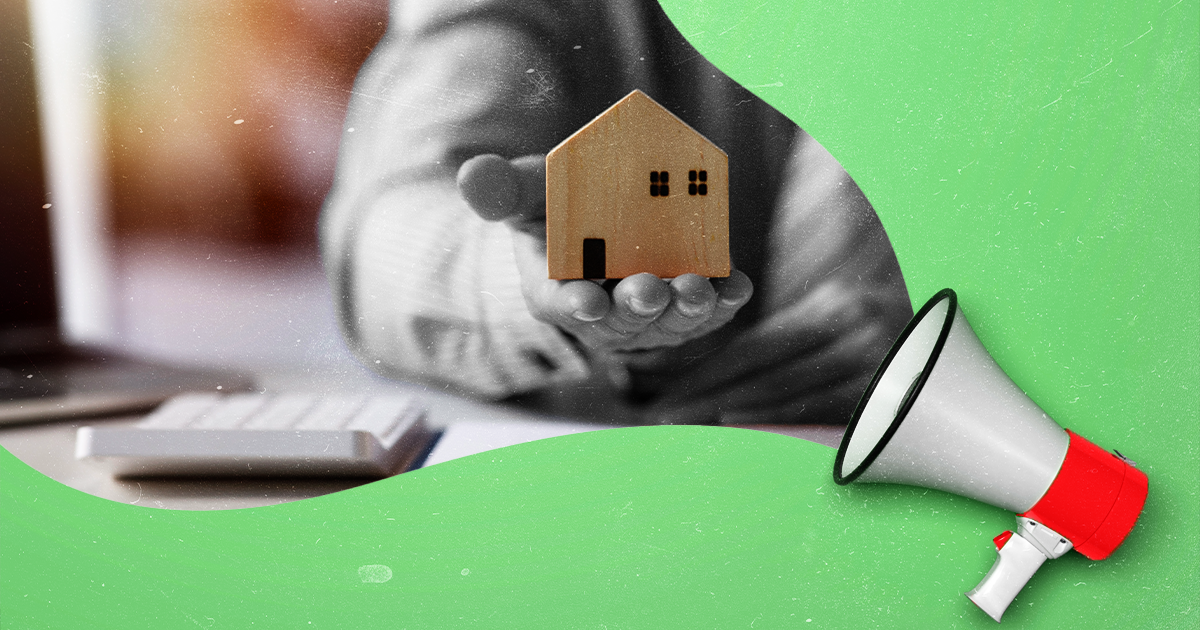Tools to Manage Rental Properties

Property management is a complex job, with many different tasks that need to be done simultaneously. It can be challenging to keep track of everything, especially if you have a large portfolio of properties. Some of the most common tasks include collecting rent, addressing maintenance requests, screening tenants, and managing finances.
However, this is where rental property management software steps in as the ultimate balancing act performer in your property management circus.
To-do list
On any given day, your to-do list might include a multitude of tasks, such as:
- Listing a vacant unit to attract potential tenants.
- Evaluating and screening several applicants.
- Processing a stack of rental applications.
- Collecting rent payments from numerous tenants.
- Navigating multiple new maintenance requests.
- Generating financial reports for property owners.
- Settling accounts with various vendors for past services.
That's a lot to handle, but there's good news—technology is your best ally in this juggling act. While a dedicated team of professionals can certainly assist, technology, particularly rental property management software, is not only cost-effective but also highly efficient.
Important Features to Consider
Not all rental property management tools are created equal, as they offer varying sets of features. When deciding on the right software for your needs, you should consider the following factors:
- Available Features: Different software packages come with different features. It's essential to understand what a particular software offers.
- Relevance: Consider which features are most relevant and beneficial to your specific property management requirements.
- Must-Have Features: Identify your deal-breaker features—those that are non-negotiable for your operations.
The good news is that many property management software solutions provide a broad range of features that can simplify and automate various aspects of your property management efforts.
1. Rent Collection and Tenant Communication
The foremost role of rental property management software is to streamline rent collection and tenant communication. This means ensuring faster, reliable, and semi-automated rent payments, which are incredibly valuable to property managers.
Many property management software solutions include a comprehensive tenant portal that enables you to collect rent and communicate directly with your tenants. Additionally, tenants can manage their rent payments and other responsibilities through the portal, such as pet rent, parking fees, and maintenance requests. The result is improved efficiency—rent is collected faster, more reliably, and with less manual effort on your part.
2. Work Orders Made Easy
Juggling work orders between tenants and vendors can be a challenging task. It involves coordinating maintenance requests, following up with vendors, and keeping tenants informed of the progress. Rental property management software can significantly simplify this process.
With most property management tools, you can perform a variety of tasks:
- Accept maintenance requests directly from tenants.
- Create work orders and attach notes and images to provide detailed instructions.
- Assign work orders to specific vendors.
- Process payments to vendors.
- Communicate with tenants regarding the status and information related to their maintenance requests.
All these tasks are consolidated in one centralized platform, making it easier to streamline and simplify the entire maintenance order process.
3. Streamlined Tenant Selection
The best rental property management software goes beyond simplifying rent collection and maintenance orders; it also facilitates the tenant acquisition process. Many property management tools offer features such as online applications and applicant screening.
- Online Applications: Tenants can complete and submit rental applications entirely online, including processing application fees. You can effortlessly monitor the status of applications with just a few clicks.
- Applicant Screening: To further streamline the tenant selection process, many tools enable applicants to request their own background checks while submitting their applications and processing the associated payment.
4. Minimizing Vacancy Downtime: Automated Unit Listings
Maximizing revenue from your properties begins with minimizing downtime between tenants. Vacant units represent missed opportunities and lost income.
Luckily, numerous rental property management tools have the capability to automatically list vacant units on key property listing platforms. This means less effort required on your part, and it ensures you have shorter vacancy periods, leading to improved cash flow for your property management business.
How much rental property management software Costs?
The cost of rental property management software can vary depending on the features and functionality you need, the number of properties you manage, and the provider you choose. However, most software programs charge between $1 and $2 per unit under management.
Here is a breakdown of the typical pricing structure for rental property management software:
Per-unit pricing: This is the most common pricing model, where you are charged a monthly fee for each unit you manage. The fee typically ranges from $1 to $2 per unit, but it can be higher or lower depending on the provider and the features you choose.
Tiered pricing: This pricing model offers a set of tiers with different features and pricing based on the number of units you manage. For example, you might pay $50 per month for up to 10 units, $100 per month for up to 25 units, and so on.
Custom pricing: If you have a large number of units or you need specialized features, you may be able to get a custom quote from a software provider. This is typically the most expensive option, but it can be worth it if you need a tailored solution.
In addition to the monthly fee, you may also be charged for one-time setup fees, training fees, and support fees.
Here are some of the factors that can affect the cost of rental property management software:
- The number of properties you manage: The more properties you manage, the more expensive the software will be.
- The features and functionality you need: If you need a lot of features, such as online rent payments, maintenance tracking, and marketing tools, the software will be more expensive.
- The provider you choose: Some providers are more expensive than others. It is important to compare prices and features from multiple providers before making a decision.
Best Tools to Consider
The best property/tenant management software for you will depend on your specific needs and budget. We will recommend that you compare different software before you choose one. You should also consider your specific needs and budget when making your decision.
- Buildium is a popular choice for property managers of all sizes due to its comprehensive feature set and user-friendly interface. It offers a wide range of features that can help property managers streamline their operations, including tenant management, accounting, maintenance, communication, and reporting. Buildium is also scalable, so it can grow with your business as your portfolio expands.
- AppFolio is known for its powerful maintenance management capabilities. It offers a variety of features that can help property managers manage maintenance requests, work orders, vendor management, and communication with tenants efficiently. AppFolio is a good choice for property managers who prioritize efficient maintenance operations and want to avoid costly downtime.
- Yardi Breeze is a cloud-based property management solution that is well-suited for property managers who are looking for a software solution with a strong focus on marketing and leasing. Yardi Breeze simplifies the listing of vacant units on property listing platforms and offers other features that can help property managers attract new tenants quickly and minimize vacancy periods.
- Rent Manager is a good choice for property managers with smaller portfolios or those who are looking for a simple and easy-to-use software solution. Rent Manager offers a wide range of features, including tenant management, accounting, maintenance, and communication. It is also highly customizable, so property managers can tailor the software to their specific needs.
Comparison in terms of Integration and Compatibility
Integrating property management software with existing tools and systems is crucial for seamless operations. These tools should ideally sync with accounting software, customer relationship management (CRM) systems, or other platforms that property managers commonly use.
- Buildium: Offers integration with accounting software like QuickBooks, which streamlines financial management. It also integrates with online rental listing platforms, facilitating easy property listings across multiple sites.
- AppFolio: Provides integration with accounting software and offers an open API for potential integrations with other systems, ensuring smoother data flow between different platforms.
- Yardi Breeze: Offers integrations with popular platforms, allowing property managers to link their systems for efficient data transfer and management across various tools.
- Rent Manager: Known for its customization options, Rent Manager can be tailored to integrate with existing systems, enhancing operational efficiency for property managers.
Comparison in terms of Updates or Maintenance
Regular updates and maintenance of property management software are critical for optimal performance, security, and functionality. Property managers rely on these tools for various tasks, and consistent updates ensure they remain relevant and efficient.
- Buildium: Regularly updates its software, introducing new features and improvements. It offers ongoing support and software maintenance to address any issues that may arise, providing a reliable user experience.
- AppFolio: Known for its robust maintenance and updates, AppFolio consistently releases updates to enhance its functionality, security, and user experience. It also offers dedicated customer support for any queries or problems.
- Yardi Breeze: Continuously updates its software to meet market demands and improve user experience. It focuses on maintaining security standards and offers support for any software-related issues.
- Rent Manager: Provides regular updates to its software, addressing bugs and introducing new features based on user feedback. Its support team ensures users have access to assistance when needed, contributing to a smoother user experience.
Conclusion
Rental property management tools offers a streamlined solution for handling the complexities of property management. By automating tasks such as rent collection, maintenance requests, and tenant screening, these tools improve efficiency and minimize downtime. While costs vary, the investment in reliable software pays off through enhanced workflow and tenant satisfaction. Leading options like Buildium, AppFolio, Yardi Breeze, and Rent Manager offer tailored solutions, integrating with existing tools and providing regular updates for optimal performance. In essence, leveraging rental property management software is key to navigating the challenges of property management with ease and effectiveness.




